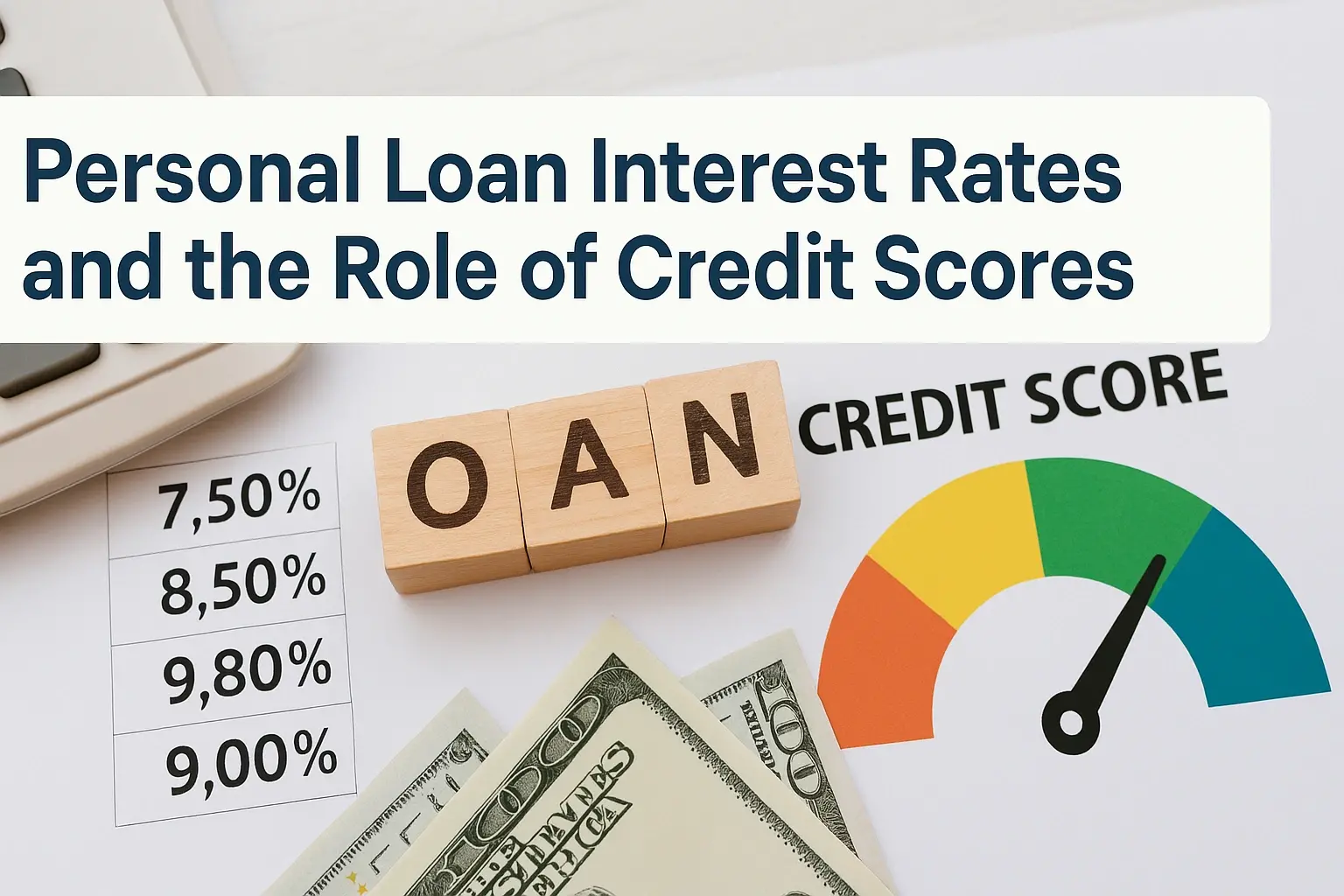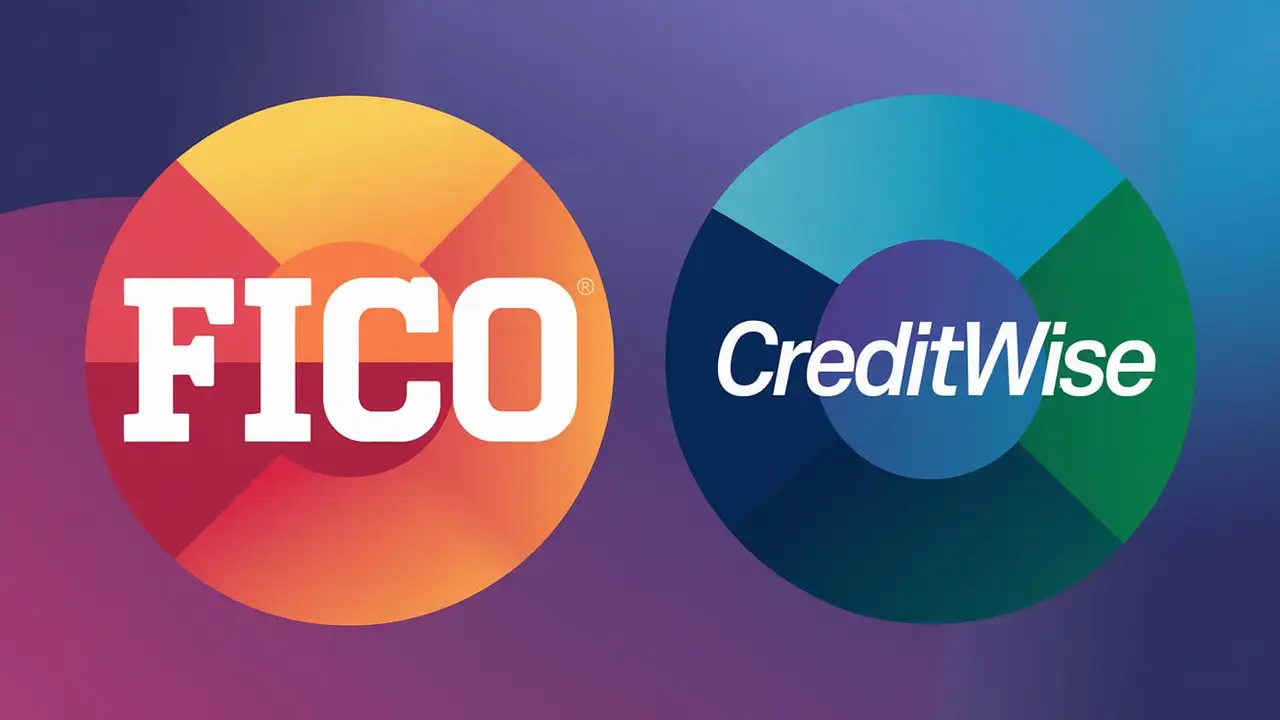-
Posted on: 22 Jul 2025

-
Are you considering a personal loan to consolidate debt, fund a home renovation, or cover unexpected expenses? Understanding personal loan interest rates is key to making a smart financial decision. Personal loans are unsecured loans that provide a lump sum of money, repaid in fixed monthly installments over a set period, typically 1 to 7 years. The interest rate you receive directly affects the total cost of the loan, and one of the most significant factors influencing this rate is your credit score. In this comprehensive guide, we’ll explore how credit scores impact personal loan interest rates, the factors lenders consider, current average rates, and practical steps to secure the best possible rate. Let’s get started.
Understanding Credit Scores
A credit score is a three-digit number, typically ranging from 300 to 850, that summarizes your creditworthiness based on your financial history. Lenders use this score to evaluate the risk of lending you money. A higher score suggests you’re a reliable borrower, while a lower score may indicate a higher risk of default. Credit scores are calculated based on five key factors:
-
Payment History (35%): Your record of paying bills on time is the most critical factor. Late payments, missed payments, or defaults can significantly lower your score.
-
Credit Utilization (30%): This measures the percentage of your available credit you’re using. Keeping your credit card balances below 30% of your credit limit is ideal.
-
Length of Credit History (15%): A longer credit history provides more data for lenders, often improving your score.
-
Types of Credit (10%): A mix of credit types, such as credit cards, mortgages, and installment loans, can positively affect your score.
-
New Credit Inquiries (10%): Applying for multiple new credit accounts in a short period can signal financial distress, lowering your score.
Credit scores are typically categorized as follows:
-
Poor: 300–579
-
Fair: 580–669
-
Good: 670–739
-
Very Good: 740–799
-
Excellent: 800–850
Your credit score is a snapshot of your financial health and plays a pivotal role in determining the terms of a personal loan.
How do Credit Scores Affect Personal Loan Interest Rates?
Your credit score is one of the primary factors lenders use to set your personal loan interest rate. A higher score generally qualifies you for lower rates, as it indicates a lower risk of default. Conversely, a lower score often results in higher rates to offset the lender’s risk. Here’s how average personal loan interest rates break down by credit score range, based on data from Bankrate as of July 2025:
Credit Score Range
Average Interest Rate (%)
Poor (300–629)
28.50–32.00
Fair (630–689)
17.80–19.90
Good (690–719)
13.50–15.50
Excellent (720–850)
10.73–12.50
These rates highlight the significant impact of credit scores. For example, consider a $10,000 personal loan with a three-year term:
-
Poor Credit (30% interest): Total interest paid = $10,000 × 0.30 × 3 = $9,000
-
Good Credit (15% interest): Total interest paid = $10,000 × 0.15 × 3 = $4,500
-
Excellent Credit (10% interest): Total interest paid = $10,000 × 0.10 × 3 = $3,000
Improving your credit score from poor to excellent could save you $6,000 in interest on this loan alone. However, note that reported averages vary across sources. For instance, Business Insider cites an average rate of 20.78% APR, while Investopedia reports a rate of 26.51%. These discrepancies may stem from different methodologies or data sets, so it’s wise to compare offers from multiple lenders.
Factors Influencing Personal Loan Interest Rates
While your credit score is a major determinant, lenders also consider other factors when setting interest rates:
-
Income: A higher income generally indicates a greater ability to repay, which may result in lower interest rates.
-
Debt-to-Income Ratio (DTI): This is the percentage of your monthly income that goes toward debt payments. A Debt-to-Income Ratio below 36% is generally preferred.
-
Employment Status: Stable, long-term employment can make you a more attractive borrower.
-
Loan Term: Shorter terms (e.g., 1–3 years) often have lower rates than longer terms (e.g., 5–7 years), as they pose less risk to lenders.
-
Loan Amount: Larger loans may carry slightly higher rates due to increased risk.
The type of lender also matters. Here’s a look at typical rate ranges from different lender types as of July 2025:
Lender Type
Example Lenders
Rate Range (%)
Banks
Citi, Wells Fargo, U.S. Bank
7.49–24.99
Credit Unions
PenFed, Navy Federal, USAA
7.99–18.51
Online Lenders
SoFi, LendingClub, Upstart
7.80–35.99
Credit unions often offer lower rates due to their member-focused structure, while online lenders may have wider ranges to accommodate diverse credit profiles.
Average Personal Loan Interest Rates
As of July 16, 2025, the average personal loan interest rate is approximately 12.64% for borrowers with a 700 FICO score, a $5,000 loan, and a three-year term, according to Bankrate. However, rates vary significantly based on credit score and lender. NerdWallet reports an average of 16.48% for borrowers with good credit (690–719), while LendingTree notes that rates range from 6.49% to 35.99% depending on creditworthiness. Economic factors, such as Federal Reserve policies and inflation, also influence rates, which have risen since 2020–2021.
How to Secure a Better Interest Rate?
Securing a lower interest rate can save you a significant amount of money. Here are actionable steps to improve your chances:
-
Boost Your Credit Score:
-
Pay all bills on time to build a strong payment history.
-
Reduce credit card balances to lower your credit utilization ratio.
-
Avoid applying for new credit accounts unnecessarily.
-
Check your credit report for errors and dispute inaccuracies through services like Lexington Law’s Credit Snapshot.
-
-
Increase Your Income:
-
Consider taking on side gigs or freelance work to demonstrate a higher earning potential.
-
-
Lower Your DTI:
-
Pay down existing debts to free up income for loan payments.
-
-
Shop Around:
-
Compare offers from banks, credit unions, and online lenders. Use prequalification tools to see rates without impacting your credit score.
-
-
Opt for a Shorter Loan Term:
-
Shorter terms often have lower rates, though monthly payments may be higher.
-
-
Consider a Co-Signer:
-
A co-signer with strong credit can help you qualify for a better rate if your score is low.
-
Alternatives to Personal Loans
While personal loans are versatile, other options may suit your needs:
-
Credit Cards: Useful for smaller expenses, but often have higher rates (average above 20%).
-
Home Equity Loans: May offer lower rates but require homeownership and carry the risk of foreclosure.
-
Borrowing from Friends/Family: Can be interest-free but may strain relationships.
Always weigh the pros and cons of each option based on your financial situation.
Conclusion
Personal loan interest rates are heavily influenced by your credit score, with higher scores unlocking lower rates and significant savings. As of July 2025, average rates range from 10.73% for excellent credit to 32.00% for poor credit, with an overall average around 12.64%. Beyond credit scores, factors like income, DTI, and loan term also play a role. By improving your credit, shopping around, and choosing favorable loan terms, you can secure a better rate and reduce the cost of borrowing. Take the first step by checking your credit score and exploring loan options from reputable lenders.
Call on (888) 803-7889 to get your credit score now!
Faq
1. What is a good interest rate for a personal loan?
A good interest rate for a personal loan typically ranges from 6% to 10% for borrowers with excellent credit. Rates can be higher for those with lower credit scores.
2. How does credit score affect personal loan rates?
Lenders use your credit score to assess risk. Higher scores (above 700) usually qualify for lower interest rates, while lower scores may result in higher rates or loan denial.
3. Can I get a personal loan with bad credit?
Yes, you can get a personal loan with bad credit, but expect higher interest rates and limited loan options. Some lenders specialize in loans for low-credit borrowers.
4. What credit score is needed for low-interest personal loans?
To qualify for low-interest personal loans, you generally need a credit score of 720 or higher. The higher your score, the better the rate you’ll likely receive.
5. Do personal loan interest rates vary by lender?
Yes, personal loan interest rates vary widely by lender based on your credit score, income, loan amount, and loan term. It's smart to compare rates before applying.
-







